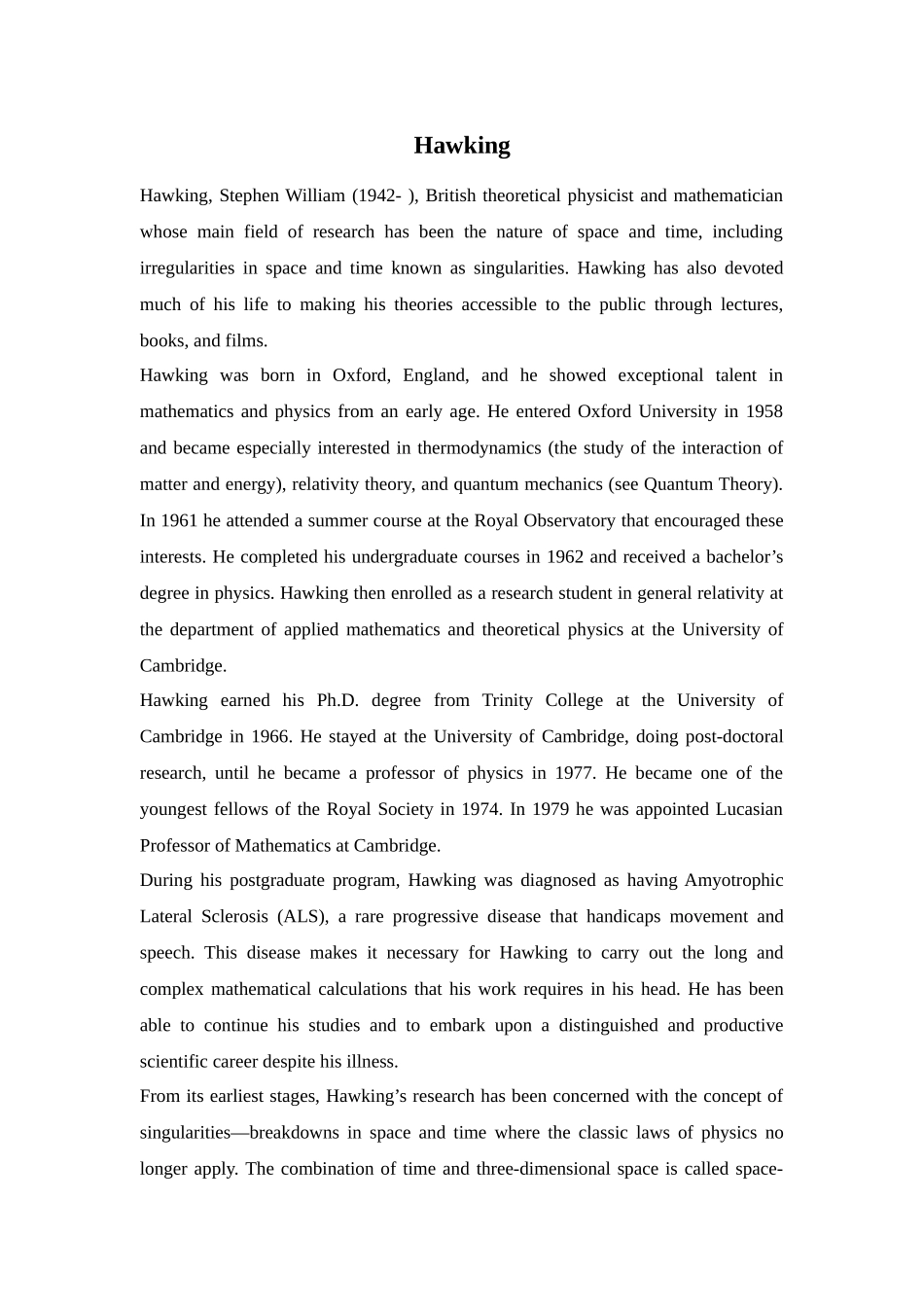HawkingHawking, Stephen William (1942- ), British theoretical physicist and mathematician whose main field of research has been the nature of space and time, including irregularities in space and time known as singularities. Hawking has also devoted much of his life to making his theories accessible to the public through lectures, books, and films.Hawking was born in Oxford, England, and he showed exceptional talent in mathematics and physics from an early age. He entered Oxford University in 1958 and became especially interested in thermodynamics (the study of the interaction of matter and energy), relativity theory, and quantum mechanics (see Quantum Theory). In 1961 he attended a summer course at the Royal Observatory that encouraged these interests. He completed his undergraduate courses in 1962 and received a bachelor’s degree in physics. Hawking then enrolled as a research student in general relativity at the department of applied mathematics and theoretical physics at the University of Cambridge.Hawking earned his Ph.D. degree from Trinity College at the University of Cambridge in 1966. He stayed at the University of Cambridge, doing post-doctoral research, until he became a professor of physics in 1977. He became one of the youngest fellows of the Royal Society in 1974. In 1979 he was appointed Lucasian Professor of Mathematics at Cambridge.During his postgraduate program, Hawking was diagnosed as having Amyotrophic Lateral Sclerosis (ALS), a rare progressive disease that handicaps movement and speech. This disease makes it necessary for Hawking to carry out the long and complex mathematical calculations that his work requires in his head. He has been able to continue his studies and to embark ...


